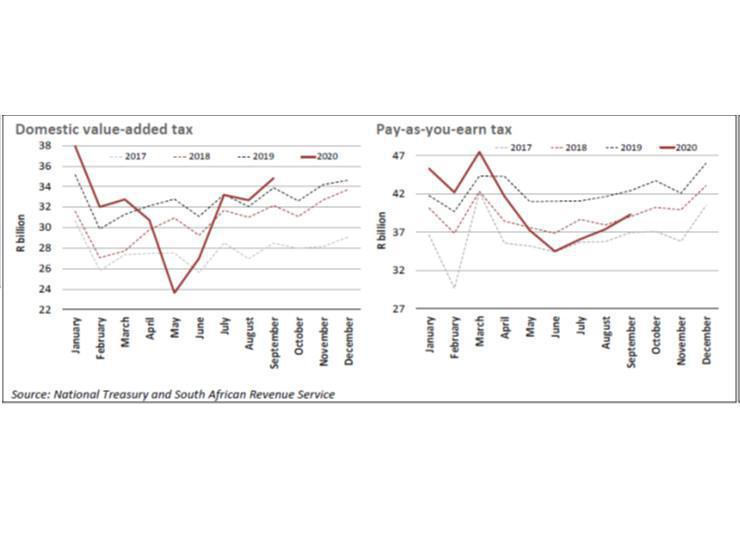(Extract from the Medium Term Budget Policy Statement)
Tax revenues, which fell sharply during the first several months of the coronavirus pandemic, have begun to recover. However, monthly collections remain well below 2019/20 levels in many tax categories. For example, domestic value-added tax (VAT) collected in the first six months of 2020/21 was 6.7 per cent lower than the same period in 2019/20.
Key factors affecting in-year revenue collection include:
- A significant decline in compensation, and therefore personal income tax, due to the lockdown.
- A weaker import outlook, which has reduced VAT and customs expectations.
- A sharp reduction in consumption, lowering domestic VAT collection.
- Downward adjustments in specific excise duties associated with a longer-than-expected tobacco ban.
- Stronger-than-expected corporate profitability, limiting the anticipated reduction in corporate income tax and dividend tax receipts.
In April 2020, government introduced tax relief measures to provide temporary assistance to businesses and households during the lockdown. These interventions offered a combination of cash-flow relief through tax deferrals, and direct support through increased incentives to retain lower-income employees and reductions in payroll taxes. Details on the take-up and effects of these measures will be provided in the 2021 Budget Review.
Improved tax collection and administration continues to be an important element in achieving fiscal consolidation. The South African Revenue Service continues to rebuild its capacity following several years of mismanagement. Near-term objectives include:
- Finalising the tax gap study in December 2020 to quantify the difference between how much tax should be collected and how much is collected.
- Remaining focused on international taxes, particularly aggressive tax planning using transfer pricing. Increasing enforcement to eliminate syndicated fraud and tax crimes.
- Continuing to use third-party data to find non-compliant taxpayers.
- Collecting pay-as-you-earn and VAT debt, and ensuring that outstanding taxpayer returns are filed and liabilities paid.

